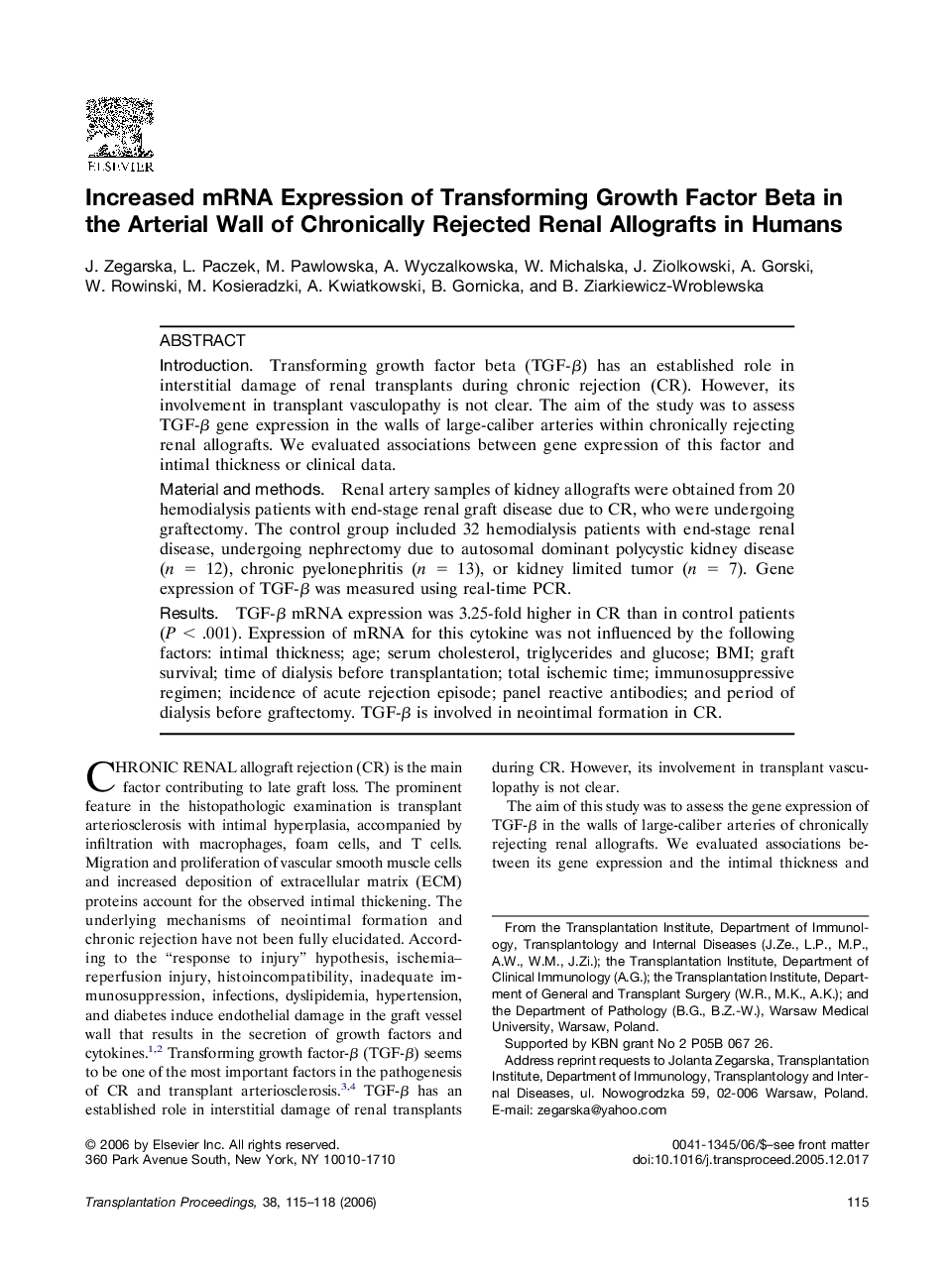| Article ID | Journal | Published Year | Pages | File Type |
|---|---|---|---|---|
| 4261794 | Transplantation Proceedings | 2006 | 4 Pages |
IntroductionTransforming growth factor beta (TGF-β) has an established role in interstitial damage of renal transplants during chronic rejection (CR). However, its involvement in transplant vasculopathy is not clear. The aim of the study was to assess TGF-β gene expression in the walls of large-caliber arteries within chronically rejecting renal allografts. We evaluated associations between gene expression of this factor and intimal thickness or clinical data.Material and methodsRenal artery samples of kidney allografts were obtained from 20 hemodialysis patients with end-stage renal graft disease due to CR, who were undergoing graftectomy. The control group included 32 hemodialysis patients with end-stage renal disease, undergoing nephrectomy due to autosomal dominant polycystic kidney disease (n = 12), chronic pyelonephritis (n = 13), or kidney limited tumor (n = 7). Gene expression of TGF-β was measured using real-time PCR.ResultsTGF-β mRNA expression was 3.25-fold higher in CR than in control patients (P < .001). Expression of mRNA for this cytokine was not influenced by the following factors: intimal thickness; age; serum cholesterol, triglycerides and glucose; BMI; graft survival; time of dialysis before transplantation; total ischemic time; immunosuppressive regimen; incidence of acute rejection episode; panel reactive antibodies; and period of dialysis before graftectomy. TGF-β is involved in neointimal formation in CR.
